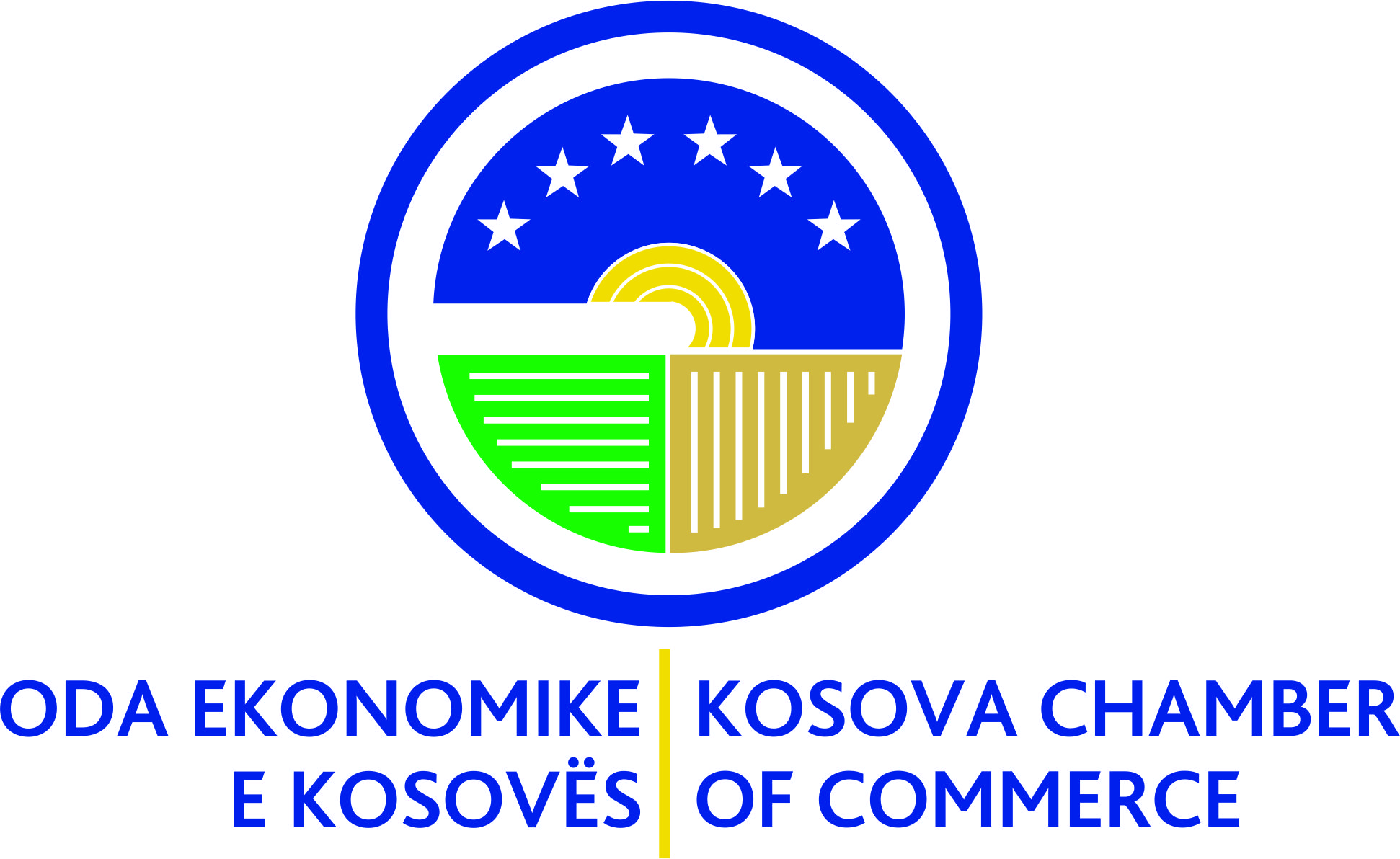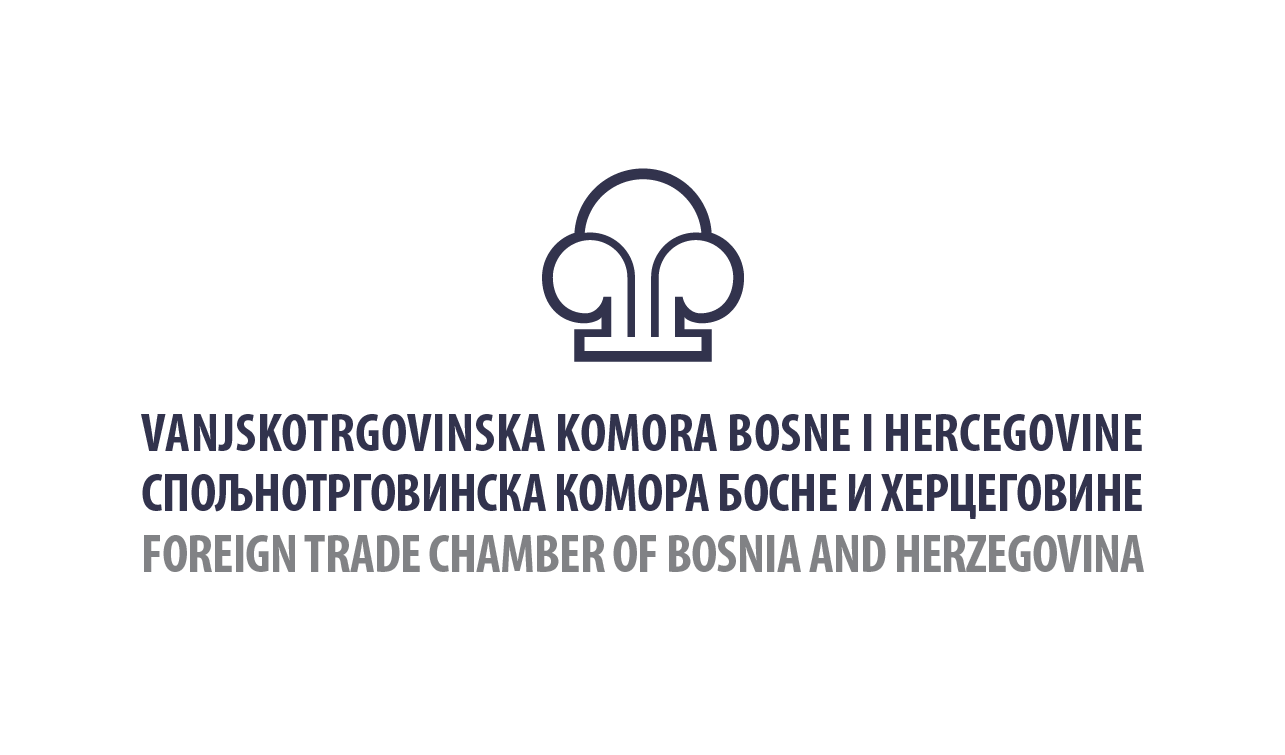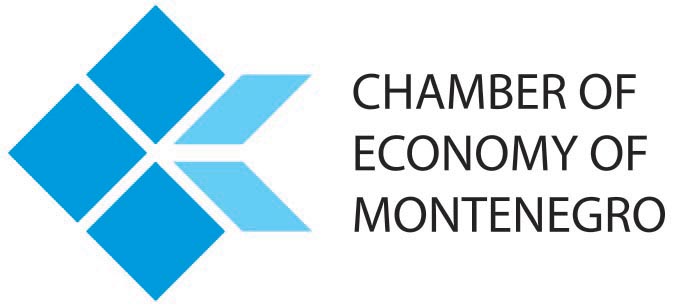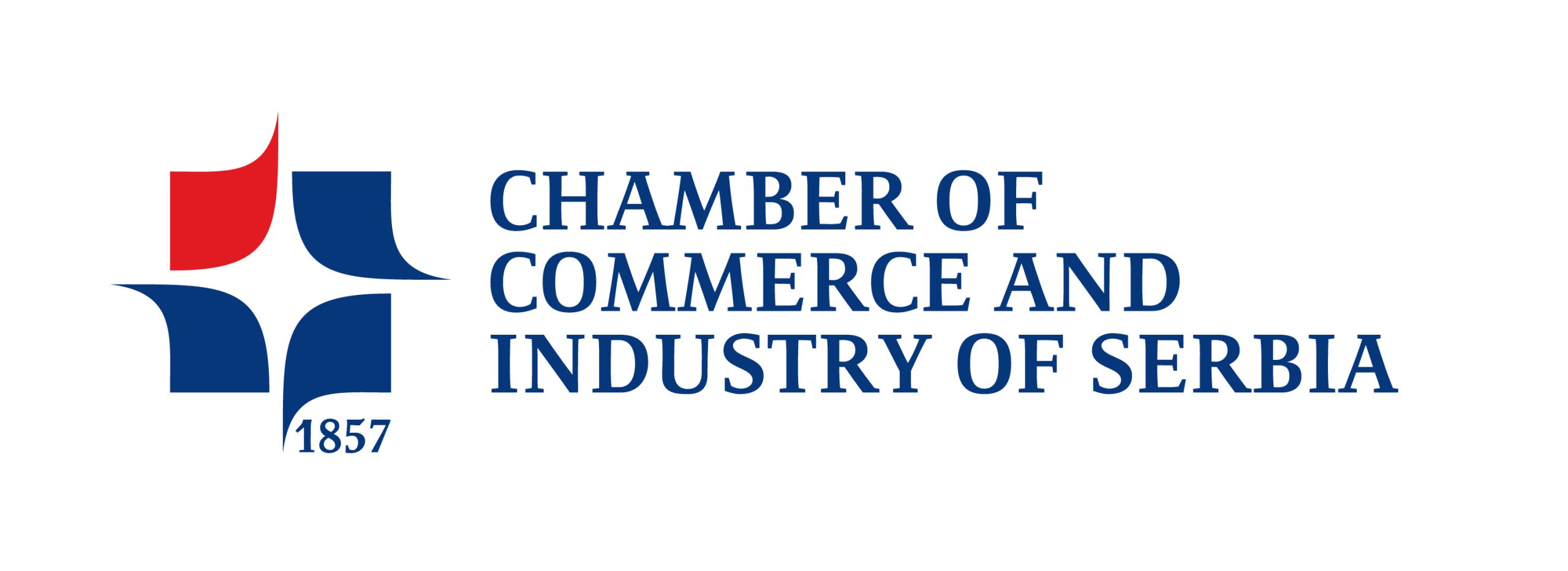
Browse and download regional and global resources covering various aspects of the circular economy, including national roadmaps, reports, and other key publications

Explore inspiring and successful circular economy initiatives from the Western Balkans region

Access hands-on resources, toolkits, and step-by-step guides to help you implement circular economy solutions in practice

Watch recordings of past events, including trainings, networking sessions, and thematic discussions

The Chamber of Commerce and Industry of Republika Srpska (RS Chamber) is an independent, non-profit public-legal association formed in 1992 under the Law on Chamber of Commerce and Industry of the Republic of Srpska. It is structured as a unified chamber system with five regional chambers (Banja Luka, Doboj, Bijeljina, East Sarajevo, and Trebinje) and has branch (sector) associations.
The Chamber represents the interests of its members — businesses, banks, educational institutions, agricultural cooperatives, and professional associations — before legislative and executive authorities, and works to develop economic relations domestically and abroad. It also provides advisory services, trainings, and support for competitiveness, export readiness, standards implementation, and business promotion.
In recent years, the Chambre has increasingly focused on sustainability and circular economy measures. For example, through its Women’s Entrepreneurship Council, it has organised trainings and workshops that include themes like energy efficiency and green economy. It participates in certification programs for business-friendly municipalities (BFC SEE) which increasingly include environmental criteria and resource-use efficiency among evaluation standards.

The Kosovo Chamber of Commerce (KCC / OEK) is a non-profit, independent institution established in 1962 by the Assembly of Kosovo. It serves as the leading representative body for the business community in Kosovo, advocating for favorable economic policies, supporting entrepreneurship, and promoting internationalization of local businesses.
Over the years, KCC has evolved its legal and organizational structure—most notably in 2005 it secured a foundational law that formalized its mandate, enabled voluntary membership, and granted it several institutional roles such as issuing certificates of origin and engaging in social dialogue.
Today, it has thousands of members across many sectors, regional offices throughout Kosovo, and works closely with both public authorities and international partners to improve the business environment and boost economic growth.
The Chamber of Kosovo has established an Office for Circular Economy to support the private sector’s green transition. Through its 2024–2026 Operational Plan and Stakeholder Engagement Plan, the Chamber has defined clear goals, initiated activities, and positioned itself as a key partner in advancing the circular economy in Kosovo.
So far, it has:
– Held over 30 meetings with international partners, including GIZ, USAID, UNDP, World Bank, and EBRD, to promote Kosovo’s green initiatives and explore cooperation opportunities.
– Organized major events such as the National Conference on Promoting the Circular Economy in Kosovo and the regional Revolve to Evolve – Go Circular conference.
– Published summary reports on key topics such as circular economy and sustainability, energy statistics, and environmental taxes in Kosovo.
– Developed project proposals, including SustainKosova (identifying 100 sustainable companies) and Greening Private Sector Companies in Kosovo (in cooperation with EBRD).
– Actively contributed to regional working groups, such as the Green Transition and Energy Efficiency Working Group (WB6 CIF) and the Stakeholder Platform on Green and Circular Economy in the Western Balkans (RCC).

The Foreign Trade Chamber of Bosnia and Herzegovina is an independent, non-governmental, non-profit, and non-political public legal association of business entities and business associations from Bosnia and Herzegovina. Its mission is to foster and improve the economic relations of Bosnian and Herzegovinian entrepreneurs and to represent their interests before the relevant institutions within the country.
In addition to these core responsibilities, the Chamber also carries out tasks based on public authority delegated by the state, and it actively engages in the education and capacity-building of businesses to prepare them for the demands of international markets.
The Chamber serves as a reliable source of information and offers a wide range of services to both domestic and international partners, including business and market intelligence, regulatory and legal information, advisory services, promotional activities, and access to databases.
The Foreign Trade Chamber of Bosnia and Herzegovina is a member of numerous international organizations (such as Eurochambres, the International Chamber of Commerce – ICC, ABC, FIATA, IRU, and SECI), which enables it to participate in projects aimed at strengthening and enhancing regional and international business cooperation.
How is this Chamber of Commerce supporting the transition to a circular economy?
The need for new circular business models and green production processes is increasingly evident in the operations of companies in Bosnia and Herzegovina. This need has emerged as a result of global trends that are transferring from developed markets to smaller economies, prompting them to adapt in order to remain competitive.
Recognizing that Bosnia and Herzegovina can safeguard its economic interests only by following the same principles, the Foreign Trade Chamber of Bosnia and Herzegovina has been actively engaged in the economic transition since the signing of the Sofia Declaration in November 2020. The Chamber has identified the potential of green value chains in building new competencies, strengthening the competitiveness of export potential, maximizing the use of domestic resources, reducing waste, protecting the environment, and creating new jobs.
Continuous education of the business sector in the field of circular economy is a key prerequisite for achieving these goals. For many years, the Foreign Trade Chamber of Bosnia and Herzegovina has served as a hub for knowledge-sharing events and capacity-building initiatives.
Supporting companies in the “greening” process often involves concrete and specific tasks, such as the implementation of technical standards in production, the identification of new sales and procurement channels, and business networking. These activities represent the core of the Chamber’s daily operations. Together with its member companies, the Foreign Trade Chamber of Bosnia and Herzegovina has initiated the transition of the domestic economy towards sustainable and environmentally friendly business models, consistently striving for excellence in all areas.

The Chamber of Economy of Montenegro (CEM), founded in 1928, is a key business association representing the interests of all economic entities in the country. It promotes economic development, encourages business practices, fosters corporate responsibility and supports integration with global markets. CEM plays an active role in shaping economic policy, engaging in EU and supporting companies through: training, project management and dispute resolution. International cooperation is central to its mission, with efforts focused on increasing exports, attracting foreign investment and supporting Montenegrin companies’ participation in global trade and fairs. The Chamber is part of numerous international and regional chamber networks and has substantial experience in managing EU and other donor-funded projects. It is particularly interested promoting Montenegro’s investment potential and advancing sectors like: green economy, ICT, agriculture, tourism etc.
In addition to its policy and advocacy work, the Chamber of Economy of Montenegro serves as a vital platform for dialogue between the private sector and government institutions. It organizes regular business forums, conferences, and matchmaking events, facilitating direct communication and cooperation among stakeholders. The Chamber also provides up-to-date economic analyses and market intelligence, helping companies make informed decisions and adapt to changing trends. Through its sector-specific associations and committees, CEM ensures that the voice of every industry is heard and represented. With a forward-looking approach, the Chamber remains committed to fostering innovation, sustainability, and entrepreneurship, making it a cornerstone of Montenegro’s economic resilience and growth.
By continuously advocating for a supportive business environment, the Chamber of Economy of Montenegro remains a key partner in accelerating the digital transformation of the Montenegrin economy.
How is this Chamber of Commerce supporting the transition to a circular economy?
The Chamber of Economy of Montenegro supports the transition to a circular economy through a range of strategic activities, initiatives, and partnerships aimed at promoting sustainability, innovation, and resource efficiency across the business sector. One of the instruments in this effort is the Montenegrin European Digital Innovation Hub (MontEDIH), which offers digital solutions, expert guidance, and training to help companies adopt circular business models.
In addition, the Chamber has established the Circular Economy Hub, a dedicated platform that connects businesses, research institutions, public bodies, and civil society to exchange knowledge and best practices in circularity. This Hub serves as a space for capacity building, awareness-raising, and policy dialogue, and it supports pilot projects that showcase practical applications of circular principles.
The Chamber promotes access to funding opportunities for green and circular innovations and actively participates in regional and EU-funded projects that address sustainable development goals. Through its advocacy work, training programs, and business support services, the Chamber encourages Montenegrin companies to align with EU environmental standards and embrace the circular economy as a pathway to competitiveness, resilience, and long-term growth.
The Chamber also works to raise awareness among SMEs about the economic and environmental benefits of circular practices through seminars, workshops, and targeted publications. By promoting concepts such as eco-design, waste reduction, product lifecycle extension, and industrial symbiosis, the Chamber helps businesses understand how circularity can lead not only to compliance with EU standards, but also to cost savings and new market opportunities. Collaboration with educational and research institutions is another important pillar, aiming to build skills and knowledge needed for a circular transition. Furthermore, the Chamber advocates for the integration of circular economy principles into national policies and development strategies, ensuring that the private sector is actively involved in shaping Montenegro’s green agenda. Through this comprehensive approach, the Chamber of Economy of Montenegro positions itself as a driving force behind the shift toward a more sustainable, innovative, and circular economic system.

The Small Business Chamber’s programs provide support to its members in the areas of economic development, innovation, competitiveness, branding, and promotion in new business markets.
The Chamber facilitates networking and the establishment of project lines for financing, marketing, product and service sales, and investments. It also provides mentoring services, education, and business advice through a network of local and international consultants and collaborators.
To strengthen entrepreneurship, the Chamber builds networks of cooperation with civil society organizations, local communities, funds, and foundations. These efforts aim to enhance social impact, foster entrepreneurship, and develop entrepreneurial skills among young people. The Chamber also promotes financial literacy in the new era of digitalization, encourages green social responsibility, and advances positive environmental practices through close cooperation among companies, citizens, and organizations.
How is this Chamber of Commerce supporting the transition to a circular economy?
Digitalisation can be an enabler and catalyst for achieving a sustainable circular economy resulting in a digital circular economy which could become a key driver for the European Green Deal. Better management of data and use of digitally enabled solutions can improve different segments of the circular economy.
The Chamber is a leader in initiating and mentoring the implementation of digital technologies to establish sustainable circular models in the ecosystem of business, universities, community and institutions.
Twin Green & Digital is a program of Small Business Chamber for the design, execution and supervision of SMART digitalization , sustainable, green and circular economy development projects in the public sector, the community and the business sector.
The objectives of the Twin Green & Digital program:
– Digitalisation of organizations based on transparency and information traceability, ready for implementation of blockchain technology for an additional level of security for sensitive or critical data in the supply chain;
– Green the Economy with green investments;
– Establishment of sustainable circlar business models in the country;
– Sustainable Smart Green Communities formation as an important link in establishing a circular economy chain;
– Transition to low carbon economy in the countries of the region.
The Twin Green & Digital program is realized by:
– Cooperation with institutions, organizations and stakeholders involved in the preparation and implementation of projects for sustainable development, energy efficiency and renewable energy sources and / or preparation and implementation of an institutional framework for sustainable development, green/circular and digitalisation policies;
– Networking and realization of mutual business contacts of interested companies that offer digitalisation, energy services and equipment for digitization, energy efficiency on the one hand, and clients from the business and public sector and financial institutions;
– Supporting the members participation in local, regional and international projects with assisting in preparation or revision of project documentation, supervision and project realization with the installation of technical equipment;
– ESCo-SUN – an energy saving model for financing energy efficiency projects in the public sector, local self-government and the business sector;
– Eco-En Cert – a platform for promoting, establishing and certifying green projects and sustainable business practices for companies and organizations.

The Serbian Chamber of Commerce (PKS) is a legally defined organization of economic entities. With a tradition of 168 years, PKS brings together the Serbian economy into a unified system, both sectorally and regionally.
PKS members are business entities grouped into the sectors of agriculture, industry, and services, which are further organized into 18 branch associations. Within the network of 16 regional chambers of commerce and the chamber of the capital city, professional support and effective representation of business interests are provided regionally. Through its representative offices in several European countries, which are Serbia’s main foreign trade partners, special emphasis is placed on business internationalization and connecting domestic businesses with international markets.
PKS represents the interests and views of its members by participating in the creation of laws and other regulations relevant to the business community; it enhances economic cooperation with foreign countries; provides informational and analytical support to the economy; encourages export activity and the integration of domestic companies into international supply chains. By connecting the business sector with the scientific community, PKS promotes the application of new technologies and knowledge in modern business and production.
All members of PKS have rights and obligations defined by law and internal acts. PKS is autonomous and independent in its activities, and business representatives participate in the work of its governing bodies and structures.
How is this Chamber of Commerce supporting the transition to a circular economy?
The Role of the Center for Circular Economy of the Serbian Chamber of Commerce (PKS) is to support businesses in the transition from a linear to a circular business model through education, knowledge transfer, project initiatives, and networking.
Support for businesses in transitioning to a circular model:
Guide to the Energy Passport: https://rs.boell.org/sr/2025/03/03/vodic-kroz-energetski-pasos
Other publications: https://pks.rs/udruzenje/sluzba-za-cirkularnu-ekonomiju
https://pks.rs/dogadjaj/sajam-ecofairenergetika-4311
https://bgdmarathon.org/running-expo-belgrade-marathon/
Representation of business interests:
Organization of various educational business events (conferences, seminars, workshops, round tables) on circular economy topics:
Public awareness events aimed at raising citizen awareness about preserving natural resources and applying circular economy principles:
Marathon Plogging Challenge at the 37th and 38th Comtrade Belgrade Marathon:
Support in access to financing by informing the business and academic community about open calls and available domestic and international funding sources:
Support for foreign trade operations through the organization of fair visits and participation in the “Buyers Program – B2B meetings”, with special benefits for businesses:
Networking aimed at optimizing the consumption of natural resources and improving the state of environmental protection, including cooperation with:
Proper waste separation and disposal at the main PKS facility and recycling of tons of waste annually, thanks to cooperation with companies:
41 Avada Avenue, Florida, 98765
403-904-3623
